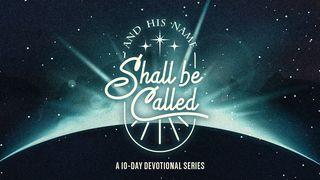5-Day Commentary Challenge - The Book Of PsalmsSample

PSALM 51
The well-known confession of David opens this second volume on the Psalms. Several phrases from Psalm 51 have etched their way into the thinking of haunted sinners who searched for words of regret and repentance. The tenth verse is perhaps the best known: “Create in me a clean heart, O God; and renew a right spirit within me.”
The rather lengthy title to Psalm 51 provides a setting for the prayer. There is no reason to question the suitability of this confession for the situation. David’s adulterous relationship with Bathsheba and his provision for Uriah’s death are the blackest of scars on that godly king’s character. In 2 Samuel 12 is recorded the encounter between Nathan, the reprimanding prophet of God, and the guilty king. This psalm, David’s prayer to God for forgiveness, is in general enough terms so that all sinners, as well as sinning believers, may echo its sentiments.
The opening two verses contain four prayer verbs: “have mercy” and “blot out,” “wash” and “cleanse.” The first couplet (v.
1) is formed by the phrases “according to your loving-kindness” and “according to the multitude of your tender mercies.” The second couplet (v. 2) has the parallel words “iniquity” and “sin.” These are not two varieties of evil any more than God has two varieties of mercy. The concepts of God’s grace and David’s sin are intensified by the use of synonyms which help fill out the total picture. Verses 7 and 9 are similar to these opening two and will be considered in order.
Whereas verses 1–2 are essentially petition, verses 4–6 are basically confession. David acknowledges the several facets of the classic doctrine of sin, called hamartiology in theology texts. First he confesses in the most general terms that he has sinned. In the middle of verse 4 he defines sin. Sin is to do what is evil according to God. Apart from a standard of right, there can be no transgression of that standard (cf. Rom. 4:15). Laws make criminals possible. God’s holy Law, which demands perfection, makes us all sinners. Verse 4 concludes with a note of praise for God’s justice. Verse 5 points to the doctrine of total depravity. It does not state that David was the product of an illegitimate union. Traditional Protestant theology recognizes that all men are born sinners and that they all sin volitionally, as well. Here David recognizes these two aspects of guilt.
Verse 6 is another interjection of praise, while verse 7 picks up the petition for forgiveness begun in verse 1. Forgiveness involves two parties, the offender and the offended, the forgiven and the forgiver. The forgiven is restored to a place of joy and health (v. 8). The forgiving party—in this case, God—must put away the accusations. So verse 9 points to His part in this transaction. However, it is not until verses 16–17 that the price of pardon is mentioned.
The concluding four petitions (vv. 11–12) are in pairs, two negative and two positive. David prays not to be cast away and not to have God’s Holy Spirit removed. Notice that “spirit” occurs in verses 10, 11, and 12. The “restore” and “uphold” of verse 12 indicate this is a believer’s prayer. The unregenerate has never had the joy of salvation.
David promises to give God service (vv. 13–14). The sincerity of his confession, like the sincerity of ours, will be demonstrated by obedient service. Forgiveness is, in a sense, removal of the evil, but there must follow the execution of the good. These promises predate the Great Commission by 1,000 years; yet they underscore the great twofold task of the church of Jesus Christ. We must bring sinners to the knowledge of God and we must praise God’s righteousness. One can hardly be done without the other. Furthermore, David recognizes that he needs divine enablement in this matter of witnessing. He prays what every hesitant
Christian should pray: “Lord, open thou my lips.”
The concluding verses (16–19) focus on the sacrificial system and its basic inadequacy. Like all perceptive Old Testament saints, David realized that God really did not want or need blood sacrifices as much as He demanded right attitudes which produced good deeds. The penitent must come not only with burnt offerings, but also with broken hearts. Repentance is more than doing penance. These well-known lines by Augustus M. Toplady express this truth:
Nothing in my hand I bring,
Simply to Thy cross I cling. (“Rock of Ages”)
Good deeds must accompany good promises. The proof of David’s sincerity would be his building the walls of Jerusalem. This divine-human intention he makes both a prayer to God and an instruction to himself and other confessors. Only as good behavior follows noble vows can any of the externals of the Old Testament religion be acceptable to God. Sacrifices of righteousness must bolster the offered bullocks. Otherwise the temple becomes merely a slaughterhouse and not the scene where men are reconciled to a holy and offended God.
Scripture
About this Plan

This reading plan is from the Everyday Bible Commentary on Psalms 8, 18, 19, 51 and 71. It is for anyone who has a desire to grow deeper in their understanding of the Scripture and strengthen your relationship with God by exploring the riches of the book of Psalms.
More
We would like to thank Moody Publishers for providing this plan. For more information, please visit: https://www.moodypublishers.com/books/bible-study-and-reference/psalms---everyday-bible-commentary/
Related Plans

More Than a Story

14 Days of Breakthrough

And His Name Shall Be Called

The Results of a New Life in Christ

Silent Nights, Peaceful Days: Rest for Moms at Christmas

5 Reflections on Mary's Song for Advent

Living Thankful, Living Sober

Train Up a Child: Christmas

The Blessing of Jesus
